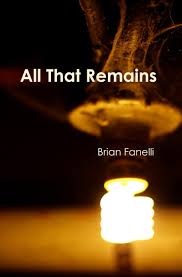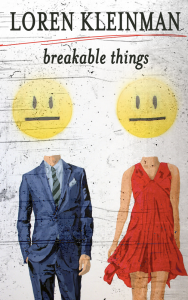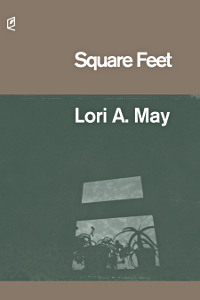
Unbound Content
75 pages, $15.00
Review by Patricia Kinney
All That Remains might be Brian Fanelli’s first full-length collection of poems but this book is definitely not a B-side begging to be forgotten. While the punk rhythms and mosh pits in some poems like “The Quiet Fan,” “Reunion,” and “Natural Cool” echo Fanelli’s chapbook, Front Man, (2011 / Big Table Publishing) this collection shows maturity in a voice that is looking back on lost ideals while embracing the future, both emotionally and economically.
All That Remains features characters with authentic voices in tight lines and rhythms that haunt like the lines in a Bob Dylan song. You almost want to sing along with the sentiment in poems like “Ride Home, Rutgers, November,” as though the words belong on album liner notes:
His dustbowl growl
reminds me of cool
autumn nights we plucked LP’s
from milk crates,
listened
to the scratch of the needle against wax.
Now I drive
home
from her place
alone …
And yet, there is wisdom in these carefully crafted lines that you won’t gain from reading lyrics printed on cardboard.
Break-up poems easily turn sentimental in the hands of a less accomplished poet, but Fanelli handles the emotion with seamless rhythm:
… recall her words-
We should see other people–
and how I looked away,
focused
on the fat Oak tree center campus
its last few leaves
clinging
against the pull and push of winds
as forceful
as bursts of harmonica blues blasting
through my car’s stereo,
bringing me back to nights
at her apartment,
listening to Dylan snarl
over acoustic chords.
Fanelli is also politically savvy without preaching, calling attention to the burden of the blue-collar lifestyle, echoing Bruce Springsteen in poems like “After Working Hours.” This poem about a couple meeting in the kitchen after a day’s work could be any U.S. laborer, with “her back hunched from years behind a counter” or “buzzsaws grinding down wood, hammers pounding nails.” At the same time, there is a concreteness of image that makes us aware of this specific couple’s plight: “When they wake, they speak nothing / of his blistered fingers and swollen knuckles, / her headaches caused by nagging customers. / … She picks up the paper, then slips her hand over his, / feeling warmth beneath his callouses and cracked skin.” You can’t help but think of Springsteen’s “Thunder Road,” while reading and, like Springsteen, Fanelli gets down to the sheer grit at the core of these characters and creates a feeling of celebration with precise images and deliberately strong language.
Like a Dylan or Springsteen record deserves more than one spin, Brian Fanelli’s All That Remains is a book that deserves more than one read. Rich in small town culture, this collection is filled with characters that have overcome the losses in life, but it doesn’t forget those who have not. It is down-to-earth and true to those often overlooked groups, the young idealists and the rural working class. Fanelli’s lyrical rhythms whisper and howl, croon and screech, reminding us there will be repercussions for every loss. At the same time, the collection leaves us with the extraordinary hope that it seems only music can bring. For whenever the music stops and all that remains are the ghostly echoes of silence, there will always be the remnants of a song.
***
Patricia Kinney is working on her Master’s degree in English/Creative Writing at the State University of New York in Binghamton and was recently accepted into the PhD program there. Her poetry has appeared in Indigo Rising, Adanna, and Yes, Poetry. She lives in rural Northeastern PA.
![[PANK]](https://pankmagazine.com/wp-content/themes/pank/assets/images/pank-logo-large.png)






